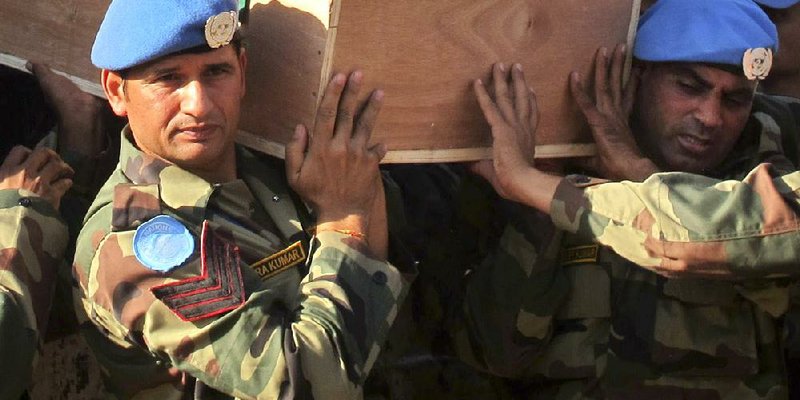JUBA, South Sudan - Armed rebels were said to be in control of some of South Sudan’s oil fields Friday, raising questions of how long the country’s oil will flow and whether neighboring countries will enter the conflict which showed no signs of ending.
President Salva Kiir implored his country to turn away from ethnic violence and met Friday with foreign ministers from neighboring states, including Kenya and Ethiopia, who flew into Juba, the capital, to help calm tensions after a week of ethnic strife that is estimated to have killed hundreds.
Kiir did not speak publicly, but the government’s Twitter feed attributed this quote to him: “Those who may want to take the law into their hands, the long arm of the government will get them.”
On Friday evening, U.S. Secretary of State John Kerry announced that the special envoy for Sudan and South Sudan, Ambassador Donald Booth, would be traveling to the region immediately.
“Now is the time for South Sudan’s leaders to rein in armed groups under their control, immediately cease attacks on civilians and end the chain of retributive violence between different ethnic and political groups,” Kerry said in a statement.
The U.N. Security Council expressed “grave alarm” at the rapidly deteriorating security crisis, condemned targeted ethnic violence and demanded an end to the fighting. In an attack Thursday on a U.N. base in Jonglei state, two peacekeepers from India were killed.
The U.N.’s most powerful body urged the president and ousted vice president Riek Machar “to demonstrate leadership in bringing a swift and peaceful resolution to this crisis.”
France’s U.N. ambassador, Gerard Araud, the current council president, told reporters that Kiir and the widow of South Sudan’s rebel hero John Garang, who led the country’s fight for independence, have agreed to enter an unconditional dialogue.
There was no word yet from Machar, who is believed to be in hiding.
Kiir, an ethnic Dinka, earlier this week said an attempted coup had triggered the violence, and the blame was placed on Machar, an ethnic Nuer. But officials have since said a fight between Dinkaand Nuer members of the presidential guard triggered the fighting Sunday night that has since spread across the country. Machar’s ouster from the country’s No. 2 political position earlier this year had stoked ethnic tensions.
The Security Council said the violence resulted from a “political dispute among the country’s political leaders” that could affect not only South Sudan, but neighboring countries and the entire region.
“The political crisis could lead to a general and political civil war if we do not solve it very quickly through dialogue,” Araud warned.
Fighting continued to spread Friday in Jonglei and Unity state, an oil area, as armed groups opposed to the nation’s military emerged, said a South Sudan expert communicating with combatants and U.N. officials in strife-torn regions outside the capital.
“We’ve seen the conflict expand quite rapidly and quite dramatically in recent days.We’ve seen the emergence of different armed groups under different commands, and we’ve seen the former vice president say he’s not interested in talks that don’t end in Salva Kiir stepping down,” said Casie Copeland, South Sudan analyst for the International Crisis Group. She added that the arrival of regional foreign ministers in Juba “is genuinely a good thing.”
South Sudan’s government admitted Thursday that the central government had lost control of Bor, the capital of Jonglei, which is the country’s largest and most populous state.
Araud said Friday that 14,000 civilians have taken refuge in a U.N. camp in Bor, protected by a company of Indian peacekeepers.
He said oil facilities have been raided “and apparently the Dinka employees have been killed.” He also reported rising tensions around Bentiu, the capital of Unity, “which are linked to the oil installations.”
South Sudan’s oil fields have historically been a target for rebel movements, and Copeland said armed opposition groups appeared to be in control of some oil fields in Unity state.
South Sudan gets nearly 99 percent of its government budget from oil revenue. The country reportedly earned $1.3 billion in oil sales in just five months this year.
Information for this article was contributed by Rodney Muhumuza and Edith M. Lederer of The Associated Press.
Front Section, Pages 8 on 12/21/2013
